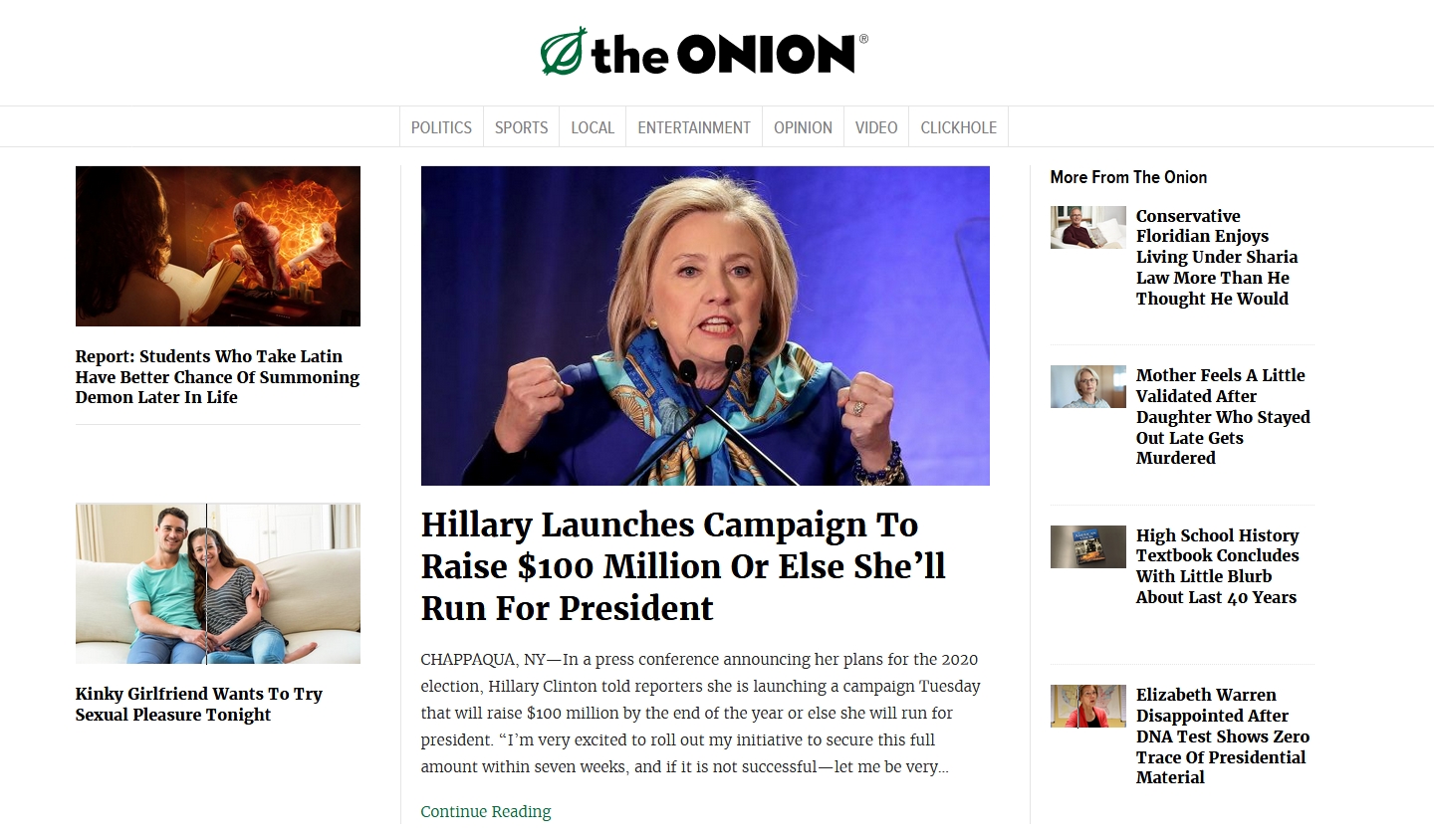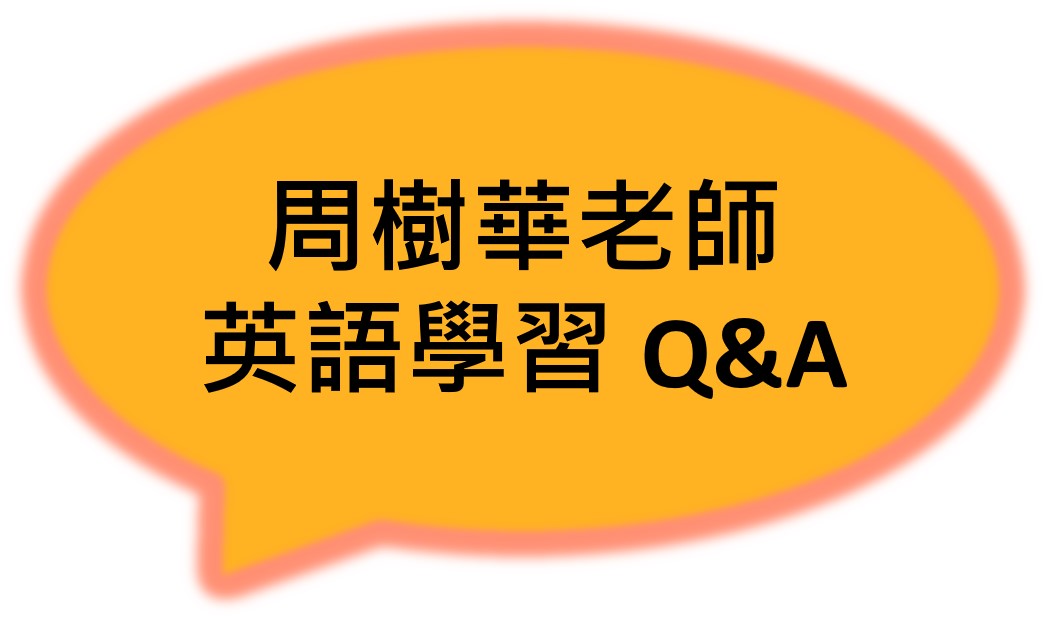Low Carb? Low Fat? What Latest Dieting Studies Tell Us
VOA News
January 01, 2019 5:14 PM Associated Press (source)
Low Carb? Low Fat? What Latest Dieting Studies Tell Us
低卡還是低脂?最新飲食研究說分明
January 01, 2019 5:14 PM
Associated Press
New York —
Bacon and black coffee for breakfast, or oatmeal and bananas?
If you're planning to try to lose weight in 2019, you're sure to find a fierce debate online and among friends and family about how best to do it. It seems like everyone has an opinion, and new fads emerge every year.
Two major studies last year provided more fuel for a particularly polarizing topic — the role carbs play in making us fat. The studies gave scientists some clues, but, like other nutrition studies, they can't say which diet — if any — is best for everyone.
That's not going to satisfy people who want black-and-white answers, but nutrition research is extremely difficult and even the most respected studies come with big caveats. People are so different that it's all but impossible to conduct studies that show what really works over long periods of time.
Before embarking on a weight loss plan for the new year, here's a look at some of what was learned last year.
Fewer carbs, fewer pounds?
It's no longer called the Atkins Diet, but the low-carb school of dieting has been enjoying a comeback. The idea is that the refined carbohydrates in foods like white bread are quickly converted into sugar in our bodies, leading to energy swings and hunger.
By cutting carbs, the claim is that weight loss will be easier because your body will instead burn fat for fuel while feeling less hungry. A recent study seems to offer more support for low-carb proponents. But, like many studies, it tried to understand just one sliver of how the body works.
The study, co-led by an author of books promoting low-carb diets, looked at whether varying carb levels might affect how the body uses energy. Among 164 participants, it found those on low-carb diets burned more total calories than those on high-carb diets.
The study did not say people lost more weight on a low-carb diet — and didn't try to measure that. Meals and snacks were tightly controlled and continually adjusted so everyone's weights stayed stable.
David Ludwig, a lead author of the paper and researcher at Boston Children's Hospital, said it suggests limiting carbs could make it easier for people to keep weight off once they've lost it. He said the approach might work best for those with diabetes or pre-diabetes.
Ludwig noted the study wasn't intended to test long-term health effects or real-world scenarios where people make their own food. The findings also need to be replicated to be validated, he said.
Caroline Apovian of Boston University's School of Medicine said the findings are interesting fodder for the scientific community, but that they shouldn't be taken as advice for the average person looking to lose weight.
Do I avoid fat to be skinny?
For years people were advised to curb fats, which are found in foods including meat, nuts, eggs, butter and oil. Cutting fat was seen as a way to control weight, since a gram of fat has twice as many calories than the same amount of carbs or protein.
Many say the advice had the opposite effect by inadvertently giving us license to gobble up fat-free cookies, cakes and other foods that were instead full of the refined carbs and sugars now blamed for our wider waistlines.
Nutrition experts gradually moved away from blanket recommendations to limit fats for weight loss. Fats are necessary for absorbing important nutrients and can help us feel full. That doesn't mean you have to subsist on steak drizzled in butter to be healthy.
Bruce Y. Lee, a professor of international health at Johns Hopkins, said the lessons learned from the anti-fat fad should be applied to the anti-carb fad: Don't oversimplify advice.
"There's a constant look for an easy way out," Lee said.
Which is better?
Another big study this past year found low-carb diets and low-fat diets were about equally as effective for weight loss. Results varied by individual, but after a year, people in both groups shed an average of 12 to 13 pounds.
The author noted the findings don't contradict Ludwig's low-carb study. Instead, they suggest there may be some flexibility in the ways we can lose weight. Participants in both groups were encouraged to focus on minimally processed foods like produce and meat prepared at home. Everyone was advised to limit added sugar and refined flour.
"If you got that foundation right, for many, that would be an enormous change," said Christopher Gardner of Stanford University and one of the study's authors.
Limiting processed foods could improve most diets by cutting down overall calories, while still leaving wiggle room for people's preferences. That's important, because for a diet to be effective, a person has to be able to stick to it. A breakfast of fruit and oatmeal may be filling for one person, but leave another hungry soon after.
Gardner notes the study had its limitations, too. Participants' diets weren't controlled. People were instead instructed on how to achieve eating a low-carb or low-fat in regular meetings with dietitians, which may have provided a support network most dieters don't have.
What works?
In the short term you can probably lose weight by eating only raw foods, or going vegan, or cutting out gluten, or following another diet plan that catches your eye. But what will work for you over the long term is a different question.
Zhaoping Li, director of clinical nutrition division at the University of California, Los Angeles, says there is no single set of guidelines that help everyone lose weight and keep it off. It's why diets often fail — they don't account for the many factors that drive us to eat what we do.
To help people lose weight, Li examines her patients' eating and physical activity routines to identify improvements people will be able to live with.
"What sticks is what matters," Li said.
早餐吃培根喝黑咖啡,還是燕麥粥(oatmeal)配香蕉好呢?
如果你打算在 2019 年減重,那麼肯定能在網路上及親朋好友間見到關於最佳減重方式熱烈(fierce)的討論。大家對於如何減重似乎都有自己的一套看法,而且每年都會興起(emerge)新的減重熱潮(fad)。
長久以來,碳水化合物(carb)是否導致肥胖是個非常兩極化(polarize)的主題,而去年(編按:2018 年)的兩項重要飲食研究為這主題增添了更多話題性。不過,如同其他營養(nutrition)研究,這兩份研究提供了科學家一些線索(clue),卻無法指出哪一種飲食(如果有的話)對大眾最好。
這樣的結果勢必無法滿足想要黑白分明(black-and-white)答案的人。然而,營養研究的進行非常困難,即便是最被看重的研究也伴隨著很多限制(caveat)。畢竟形形色色的大眾如此不同,以致於幾乎(all but)不可能研究出可以長期依循的減重模式。
開始著手(embark on . . .)新年減重計畫前,先來瞧瞧去年相關研究給了我們什麼啟示吧!
少點碳水化合物,體重會輕點?
儘管不再稱作「阿金飲食法(Atkins Diet)」,低碳水化合物飲食(以下簡稱「低碳飲食」)學派目前正有東山再起(comeback)之勢。這種學派著重的概念在於食品(例如:白麵包)中精製的(refined)碳水化合物(carbohydrate)在人體內會迅速轉變成(convert . . . into . . .)糖分,進而引起(lead to)能量變化(swing)和飢餓感。
低碳飲食主張透過減少碳水化合物的攝取讓減重更容易,原因在於身體會轉而燃燒脂肪而非醣類,同時減少飢餓感。近來一份研究結果似乎更加支持低碳飲食的擁護者(proponent)。然而,這份研究如同其他研究般,僅能讓我們了解人體運作的一小部分而已。
這份由出版多本推廣低碳飲食書籍的作者共同主持的研究探討了不同的(varying)碳水化合物攝取量是否會影響人體對於能量的運用。研究顯示,164 位受試者中,低碳飲食者比高碳飲食(high-carb diet)者燃燒了更多卡路里(calorie,測量食物所含熱量的單位)。
研究並未表明低碳飲食者體重變得更輕,也未曾試圖測量他們的體重變化。受試者的三餐和零食都經過嚴格控管並持續調整(adjust)以便讓所有人的體重維持平穩。
美國波士頓兒童醫院(Boston Children's Hospital)研究員大衛.路德維格(David Ludwig)醫師是這份研究報告的主要作者。他說,研究結果顯示出限制碳水化合物的攝取或許能讓減重者更輕易地保持身材不復胖,同時表示這種飲食法最適合糖尿病(diabetes)或糖尿病前期(pre-diabetes)的患者。
路德維格醫師指出,這項研究並不打算檢視對健康的長期效益或是人們可以自己準備餐點的現實(real-world)情境(scenario)。他表示,這些研究結果仍需經過重複(replicate)試驗才能證實(validate)。
美國波士頓大學(Boston University)醫學院教授卡洛琳.阿波維安(Caroline Apovian)表示,這些研究結果提供科學界有趣的研究題材(fodder),但不該當作一般人減重的建議。
為了瘦一點,需要避免攝取脂肪嗎?
長久以來專家建議大眾要控制(curb)脂肪的攝取量,食物中包括肉類、堅果、蛋、奶油和食用油等都含有脂肪。減少脂肪攝取以往被視為控制體重的方法,原因在於一公克的脂肪比等量的碳水化合物或蛋白質(protein)多了一倍的卡路里。
很多人說這樣的建議無意間(inadvertently)給了我們肆無忌「啖」(gobble up)零脂肪(fat-free)餅乾、蛋糕和其他精緻食品的藉口,然而這些食品卻充滿了會讓我們腰圍更粗的精製碳水化合物與糖分,因而產生反效果。
營養專家在減重議題的處理上,逐漸從原本建議完全(blanket)不攝取油脂轉向建議限制油脂的攝取量。油脂對於重要營養素(nutrient)的吸收(absorb)不可或缺,還能帶來飽足感,但這並不表示必須吃淋(drizzle)了奶油的肉片來維持健康。
美國約翰.霍普金斯大學(Johns Hopkins University)國際衛生學系教授布魯斯.李(Bruce Y. Lee)表示,從反脂肪風潮中學到的教訓應當運用於(apply to . . .)反碳水化合物的風潮,那就是:切勿將建議過度簡化(oversimplify)。
李教授說:「減重並沒有那麼簡單。」
〔編按:本句字面之原意為「人們會不斷地藉著簡化專家的建議來為自己找尋較容易的減重方式。」〕
哪個比較好?
去年另一項大型研究發現,低碳飲食和低脂飲食兩者減重的效果差不多。其成效因人而異,但一年之後,參與研究的兩組受試者都平均甩掉(shed)了 12 至 13 磅(1 磅約 0.45 公斤)。
這份研究報告的作者指出,研究結果並未與路德維格醫師的低碳水化合物研究相悖(contradict . . .)。相反地,這些結果似乎顯示出減重方式也許可以有些彈性(flexibility)。研究鼓勵兩組受試者飲食上要以加工(processed)最少的食物為主,例如農產品(produce)或在家自行烹調準備的肉類料理,並建議所有人要限制額外糖分和精製麵粉的攝取。
「對很多人來說,建立正確的飲食基礎(foundation)會帶來極大的(enormous)改變。」美國史丹佛大學(Stanford University)教授克里斯多福.加德納(Christopher Gardner)說道。他也是這份研究報告的作者之一。
透過限制加工食品的攝取減少總熱量的吸收能夠改善大部分的飲食方式,同時還保留了一些可以依喜好選擇食物的轉圜餘地(wiggle room)。這對減重者而言很重要,因為節食必須在減重者能夠堅持(stick to)下去的情況下才有效。早餐吃水果和燕麥粥也許可以讓一個人有飽足感(filling),卻可能讓另一人很快就餓了。
加德納教授指出,這份研究仍有其局限性(limitation)。受試者的日常飲食並未受到控制,而是改以和營養師(dietitian)定期會面、接受指導(instruct)來達到低碳水化合物或低脂的飲食模式。然而,大部分節食者卻沒有這樣可供定期諮詢的支援團隊。
什麼才有效?
短期內也許可以藉由只吃未經加工的(raw)食物,或奉行嚴格素食主義(vegan),或避免攝取麩質(gluten),或是依循另一套引起關注的飲食法等方式減重。不過,該怎麼做才是長久之計就另當別論了。
美國加州大學洛杉磯分校(University of California, Los Angeles,UCLA)醫學院臨床營養科主任李兆平(Zhaoping Li)表示,沒有單一的準則(guideline)可以幫助所有人減重且不復胖。節食減重常失敗的原因在於各種節食方法並未將許多驅使我們選擇某些食物的因素納入考量。
〔編按:原新聞中,本段(新聞第 24 段/倒數第 3 段)的 "account for" 似乎為誤植,請參考紐約時報(The New York Times)於 2019 年 1 月 1 日之報導 Low Carb? Low Fat? What the Latest Dieting Studies Tell Us 一文中倒數第 3 段 ". . . It's why diets often fail — they don't factor into account the many factors that drive us to eat what we do."。〕
為了幫助病患減重,李主任仔細調查他們例行的飲食和活動常態,以便找出可以讓他們持續進步的生活模式。
李主任強調:「能堅持才是重點。」
〔編按:本篇新聞相關報導請參考史丹佛大學醫學院新聞中心(News Center at Stanford University School of Medicine)於 2018 年 2 月 20 日的報導 Low-fat or low-carb? It's a draw, study finds。〕
Language Notes
fad [fæd] (n) 一時的風尚;短暫的狂熱
polarize [`polə͵raɪz] (v) 使兩極分化;使截然對立
* polar [`polɚ] (a) 兩極的;正好相反的,截然對立的
nutrition [nju`trɪʃən] (n) 營養,滋養;營養物,滋養物;營養學
black-and-white (a) 黑白分明的;是非分明的
caveat [`kevɪ͵æt] (n) 限制條件;(進一步行動前的)警告,告誡;但書
all but (adv phr) 幾乎,差不多
embark on / upon something (v phr) 開始,著手做(新的或重要的事情)
* embark [ɪm`bɑrk] (v) 從事,著手;上船(或飛機等)
comeback [`kʌm͵bæk] (n) 恢復,復出;回歸;重整旗鼓;東山再起
carbohydrate [͵kɑrbə`haɪdret] / [͵kɑrbo`haɪdret] (n) 碳水化合物,醣類;含碳水化合物的食物,澱粉質食物
* 本字常簡化成 "carb",例如:"a low-carb diet"「低碳水化合物飲食」
convert something (A) into something (B) (v phr) 將 . . . . . . 改變成/轉變成 . . . . . .
* convert [kən`vɝt] (v) 轉變,變換
swing [swɪŋ] (n) 改變,變化
* 本字亦常指「擺動,搖擺,搖晃,搖蕩;振動」;也可作動詞,意即「擺動,搖擺,搖晃」或「改變,變化」
proponent [prə`ponənt] (n) 提倡者;宣導者;辯護者;擁護者
* 注意本字重音在第 2 音節
* propone [prə`pon] (v) 提議;倡言
diabetes [͵daɪə`bitəs] / [͵daɪə`bitɪs] / [͵daɪə`bitiz] (n) 糖尿病
* 注意本字重音在第 3 音節
scenario [sə`nɛrɪ͵o] (n) 可能發生的事態;局面;設想;場景
* 本字常見的相關名詞片語 "worst-case scenario" 意即「最壞的可能;最糟的情況」,例如:"We need to consider a worst case scenario."「我們要考慮到最糟的情況。」
replicate [`rɛplɪ͵ket] (v) 使複現;重複;複製
validate [`vælə͵det] (v) 確認;證實 . . . . . . 是對的
* 本字也指「(尤指經檢查後)批准,認可,使生效」
* valid [`vælɪd] (a) 確鑿的;有根據的;令人信服的;合法的;有效的
fodder [`fɑdɚ] (n)(為實現某目的)可利用的人(或物);素材;題材
* 本字另有「(乳牛、馬等家畜的)飼料,秣」之意
curb [kɝb] (v) 控制;限制,約束;抑制
* 本字亦可作名詞,意即「控制;限制,約束;抑制」
protein [`protin] (n) 蛋白質
inadvertently [͵ɪnəd`vɝtəntlɪ] (adv) 無意地;不經意地;非故意地
* 注意本字重音在第 3 音節
* inadvertent [͵ɪnəd`vɝtənt] (a) 無意的;非故意的
gobble something up (v phr) 大口吞食,狼吞虎嚥
* gobble [`gɑbl̩] (v) 狼吞虎嚥,大口大口地吃
blanket [`blæŋkɪt] (a) 適用於任何情況的;總括的,綜合的;全體的
* 本字也可作名詞或動詞,作名詞指「毛毯,毯子;毯狀物」或「(厚厚的)覆蓋層」,作動詞則指「以厚層覆蓋」或「掩蓋」
drizzle [`drɪzl̩] (v) 緩慢地傾倒;細細地滴灑
* 本字另有「下細雨,下毛毛雨」之意;也可作名詞,指「細雨,零星小雨,毛毛雨」或「(灑落的)少量液體」
apply to something (v phr) 適用於 . . . . . .;運用於 . . . . . .
* 本片語也常指「向 . . . . . . 申請(或要求)」,例如:"We've applied to a charitable organization for a grant for the project."「我們已向慈善組織提出申請,請求其對此計畫提供資助。」
shed [ʃɛd] (v)(常爲報刊用語)去除,擺脫
* 本字亦可指「使脫落;使掉落;蛻;脫」,例如:"The trees shed their leaves in autumn."「樹木在秋天落葉。」
contradict [͵kɑntrə`dɪkt] (v)(事實或聲明)與 . . . . . . 矛盾;與 . . . . . . 牴觸
* 注意本字重音在第 3 音節;另有「否定(陳述等);反駁;提出論據反對」之意
processed [`prɑsɛst] (a)(食品)經過特殊加工的;處理過的
* 本字與形容詞 "raw"「未加工的;處於自然狀態的」相對,例如新聞第 19 段有 "processed foods"「經過加工的食品」,第 23 段則有 "raw foods"「未經加工的食物」
produce [`prɑdjus] (n)(尤指大量生產的)食品,農產品
* 注意本字重音在第 1 音節;也可作動詞,重音則在第 2 音節(發音為 [prə`djus]),指「生產;出產;製造」、「創作」、「生,生育」或「引起,產生;招致」
foundation [faʊn`deʃən] (n) 基礎;基本原則;根據
* 本字也有「創建;建立」、「基金會」、「(幼兒學校)基礎班」及「地基;房基」等意思
wiggle room (n phr)(進行解釋或表達意見的)轉圜餘地;彈性空間;商量空間
* wiggle [`wɪgl̩] (v) / (n) 扭動;擺動
limitation [͵lɪmə`teʃən] / [͵lɪmɪ`teʃən](n) 局限,局限性
* 本字指「局限,局限性」時,常為複數形 "limitations";另常見意思為「限制,限制因素;限定」
instruct [ɪn`strʌkt] (v) 教,講授;訓練;指導
* 注意本字重音在第 2 音節;亦有「(尤指正式地)指示,命令,吩咐」之意
dietitian [͵daɪə`tɪʃən] (n) 飲食保健專家;營養師;營養學家
* 注意本字重音在第 3 音節
vegan [`vigən] (n) 嚴守素食主義者(不食用或不使用任何動物產品)
* 本字也可作形容詞,指「不食用(或不使用)任何動物產品的;嚴格素食的」
gluten [`glutən] (n) 穀蛋白黏膠質;麩質
* 本字常見的相關形容詞 "gluten-free" 意即「不含麩質的」,例如:"a gluten-free diet"「不含麩質的飲食」
guideline [`gaɪd͵laɪn] (n) 指導方針;指導原則,準則
* 本字常為複數形 "guidelines"
Check your vocabulary!
Fill in the blanks with a word or phrase from the list above. Make necessary changes. After you finish, highlight the blanks to reveal the hidden answers.
1. Recent experiments seem to contradict earlier results.
2. The patient will be offered radiation treatment – with the caveat that the method has only around a 30% chance of success.
3. Researchers tried many times to replicate the original experiment.
4. Good nutrition is essential if patients are to make a quick recovery.
5. The hotel is going to be converted into a nursing home.
6. All the information used in this report has been validated by an independent panel of experts.
7. Sometimes it seems home baking is a tradition that has all but disappeared.
8. The director of the civil rights group said blanket bans cause unacceptable breaches of innocent people's human rights.
9. Paul instructs us on how to treat one another: “Be devoted to one another in brotherly love.”
10. Rap music proved to be more than just a passing fad.
11. The statement should satisfy the media while leaving enough wiggle room in case interest rates continue to rise.
12. The only way to curb the spread of the disease is by immunizing the entire population.
13. While all proponents of a flat tax tout its simplicity, many elements are being debated.
14. High-performing enterprises seldom embark on a course of action without first evaluating all of the potential costs and benefits it might yield.
15. Despite the limitations of the survey, it did suggest some general trends.
16. Some parenting patterns inadvertently support aggressive behavior in more subtle ways.
17. Owen had maintained a rigid diet, shedding some twenty pounds.
18. The goal of the meeting was to try to predict the worst-case scenarios, and to make plans to deal with each.
編譯:外語教學暨資源中心 編輯小組
|

 Read more on VOA.
Read more on VOA.








